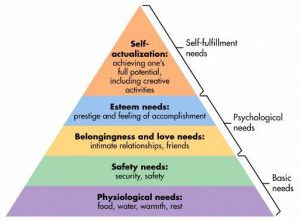Motivation; our lives are based around being motived. From being motivated enough to get up in the morning to being motivated enough to get good grades. Employers struggle with motivation the most as firms are fuelled by their employees and thus it is essential to make sure they are as motivated as can be. The definition of workplace motivation is however changing over the years and the change is fascinating.
Employers are noticing the importance of an enriching, fun and supportive work culture and this is the reason for the sudden rise in more “fun” workplaces. Google, Facebook, BCG, and many other companies have excelled in doing so. Every student aspires to one-day work in Google due to the principles they stand for, the community feeling employees experience, and even how much freedom and respect that is given to employees with the most junior roles. This is very different compared to the environment a few decades ago where your level in the workplace hierarchy reflected the amount of respect you received in a firm.
What we have started realizing is the importance of intrinsic motivators. So why is it so important for employees to be intrinsically motivated? Money is a huge motivator; it is and will always be the biggest motivator as it fulfills physiological needs. However, all the needs above the basic physiological needs on Maslow’s Hierarchy of Needs revolve around the work culture. All of which would not be fulfilled if the work environment is not the best it can be. The ability of a firm to fulfill these needs is the key to high job retention. As important as it is to attract workers, it is more important to be able to keep them so that the hours spent on training these workers are not gone to waste, and in order to ensure that they are 100% intrinsically motivated thus pushing up efficiency rates which money would not be able to do.

